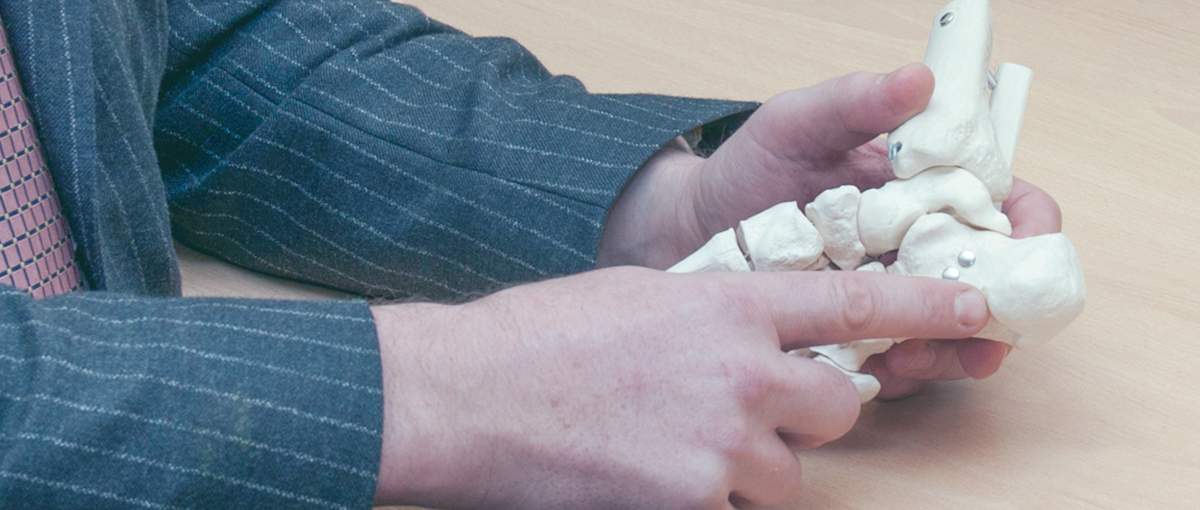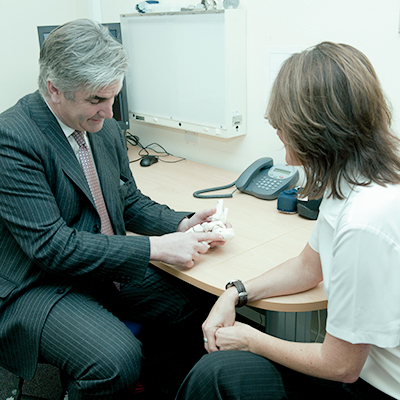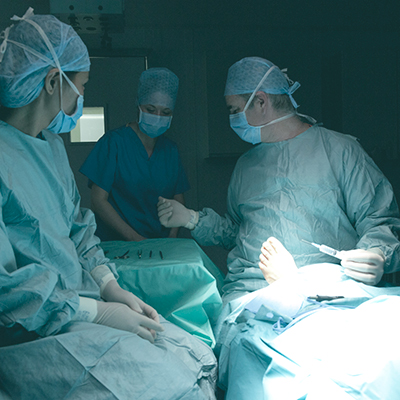Preparation
Foot surgery is rarely “life threatening”, but if problems or complications arise they can cause great distress as it is not usually possible to rest the foot. The frequency of complications can be significantly decreased in a variety of ways, and we would like to work with you to ensure that everything possible is done to ensure rapid and uneventful recovery. It is not possible to avoid all problems, but the risks can be reduced.
For our part, we have developed a team who specialise in foot surgery. The nurses, plaster technicians and others involved in your care are trained and experienced in the management of patients with foot problems.
Before you come into hospital it is important that you maintain both your body and foot in the best possible condition for the surgery.
General factors
In most cases you will be seen a week or two before the expected date of surgery for us to examine you and your feet, as well as making sure that you understand all that will happen to you. If you have any worries about your general health, tell us about them. You should liaise with your general practitioner if you are on any treatment for asthma, breathing disorders, heart disease or blood pressure. Try to do this on one of your routine check-up dates if possible.
Smoking
Any patient having a general anaesthetic should give up smoking before the anaesthetic.
The risk of complications after foot surgery is greatly increased by smoking, and you run the risk of problems such as wound breakdown, wound infection, thrombosis and failure of the bones to heal.
Chiropody/Podiatry
If you are having chiropody or podiatry treatments regularly, tell your podiatrist that you will be having surgery. Try to arrange your last treatment about one week before surgery. Do not have treatments after this time without asking your surgeon.
Athlete’s foot
If you have athlete’s foot you should try to get this cleared up by the time of your surgery. Use an antifungal ointment regularly, but do not let your feet get soggy from overuse. Treat your socks and shoes with antifungal powder, to prevent re-infection. If you need help treating the infection, ask your doctor or pharmacist.
Understanding your operation
It is important that you understand what is going to happen to you, and what problems and complications may arise.
For some operations we have explanatory leaflets, and we are writing and introducing more as rapidly as we can. Whether there is a leaflet or not for you, you should ensure that you understand what is happening before you sign your consent form, and you should not proceed to surgery unless you are happy with this.
If you do not feel that you understand your operation, and the possible problems that can arise, tell your nurse or ask the surgeon at the preadmission clinic (or at the beginning of the day for day surgery cases).



